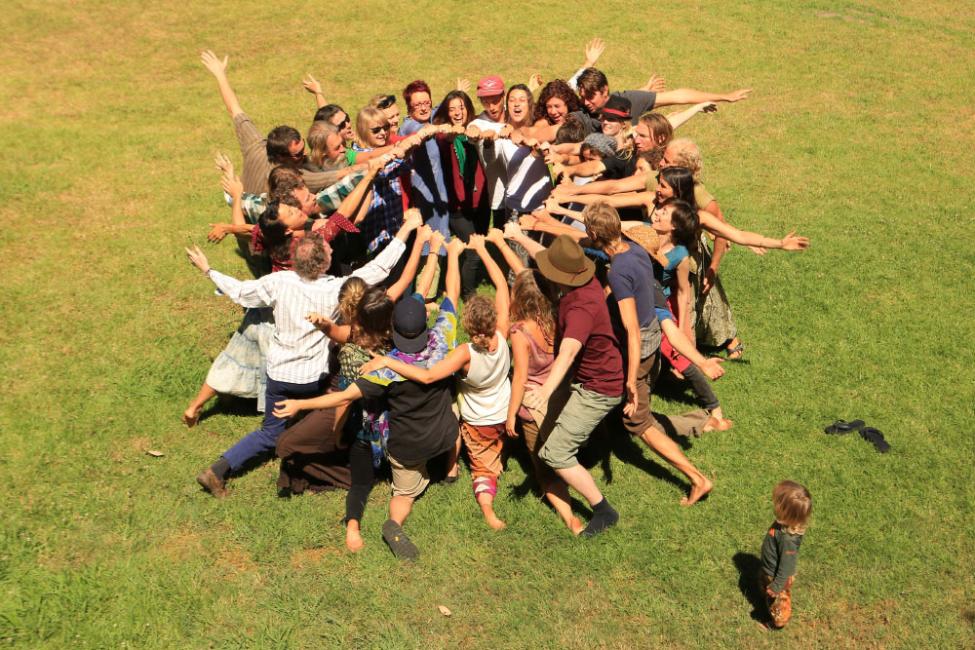Group Retreats: A Catalyst for Social Workers' Self-Care and Emotional Well-being
Social workers are often at the forefront of providing care and support to individuals and communities facing various challenges. However, the nature of their work can take a toll on their own well-being, leading to burnout and compassion fatigue. Group retreats have emerged as a promising strategy to address these issues and promote self-care and emotional well-being among social workers. This article explores the connection between group retreats and social workers' self-care and emotional well-being, highlighting the need for self-care, the benefits of group retreats, key elements of effective retreats, and practical considerations for organizing them.

The Need For Self-Care And Emotional Well-being In Social Work
Social workers face unique challenges in their profession, including exposure to traumatic stories, emotional distress, and demanding workloads. These factors can contribute to burnout, a state of emotional exhaustion, depersonalization, and reduced sense of accomplishment. Compassion fatigue, a similar condition, arises from prolonged exposure to the suffering of others. Both burnout and compassion fatigue can have detrimental effects on social workers' personal and professional lives, leading to decreased job satisfaction, impaired decision-making, and increased risk of physical and mental health problems.
Self-care and emotional well-being are essential for social workers to maintain their effectiveness and longevity in the field. Self-care involves engaging in activities that promote physical, emotional, and mental health, while emotional well-being refers to a state of positive mental health and overall life satisfaction. By prioritizing self-care and emotional well-being, social workers can better manage stress, prevent burnout and compassion fatigue, and enhance their ability to provide compassionate care to others.
How Group Retreats Can Promote Self-Care And Emotional Well-being

Group retreats offer a structured and supportive environment for social workers to engage in self-care and promote their emotional well-being. These retreats typically involve a combination of activities designed to facilitate reflection, relaxation, skill-building, and connection with peers.
- Providing a Safe and Supportive Environment: Group retreats create a safe and supportive space where social workers can openly discuss their experiences, challenges, and emotions without judgment.
- Facilitating Connections with Peers: Retreats foster a sense of community and belonging among social workers, allowing them to connect with peers who understand their unique experiences and challenges.
- Offering Opportunities for Skill-Building and Personal Growth: Retreats often include workshops, seminars, and activities focused on skill-building, personal growth, and self-care practices, helping social workers enhance their coping mechanisms and resilience.
- Encouraging Mindfulness, Relaxation, and Stress Reduction Techniques: Retreats incorporate mindfulness practices, relaxation techniques, and stress reduction strategies, enabling social workers to cultivate inner peace, reduce stress, and improve their overall well-being.
Key Elements Of Effective Group Retreats For Social Workers
Effective group retreats for social workers should incorporate several key elements to maximize their impact on self-care and emotional well-being.
- Clear Goals and Objectives: Retreats should have clearly defined goals and objectives aligned with the specific needs and challenges faced by social workers.
- Structured Program: Retreats should have a structured program that balances activities, workshops, and relaxation periods to ensure a comprehensive and engaging experience.
- Expert Facilitators: Retreats should be facilitated by experienced professionals with expertise in social work and retreat facilitation, ensuring a safe and supportive environment.
- Supportive and Inclusive Group Environment: Retreats should foster a supportive and inclusive group environment where participants feel comfortable sharing their experiences and emotions.
- Adequate Resources and Facilities: Retreats should have adequate resources and facilities to meet the needs of participants, including comfortable accommodations, nutritious meals, and appropriate activity spaces.
Evidence Supporting The Connection Between Group Retreats And Social Workers' Well-being
Research findings and case studies have demonstrated the positive impact of group retreats on social workers' self-care and emotional well-being.
- A study conducted by the University of California, Berkeley found that social workers who participated in a group retreat experienced significant reductions in burnout and compassion fatigue, along with improvements in self-care practices and overall well-being.
- A qualitative study published in the Journal of Social Work Education highlighted the transformative effects of group retreats on social workers, fostering a sense of community, promoting self-reflection, and enhancing resilience.
- Testimonials from social workers who have attended group retreats consistently emphasize the benefits of these experiences in reducing stress, improving coping mechanisms, and renewing their commitment to self-care.
Practical Considerations For Organizing Group Retreats For Social Workers
Social work organizations and leaders can play a crucial role in supporting group retreats for their staff.
- Identifying Funding Sources: Organizations can explore various funding sources, such as grants, donations, and fundraising events, to secure financial support for group retreats.
- Selecting Retreat Locations and Facilities: Retreats should be held in locations that offer a peaceful and conducive environment, with facilities that can accommodate the needs of participants.
- Developing a Comprehensive Retreat Program: Organizations should develop a comprehensive retreat program that includes a balance of activities, workshops, and relaxation periods, ensuring a holistic and engaging experience.
- Recruiting and Training Facilitators: Organizations should recruit and train facilitators with expertise in social work and retreat facilitation to ensure a safe and supportive environment for participants.
- Evaluating the Effectiveness of the Retreat: Organizations should evaluate the effectiveness of group retreats through feedback from participants, surveys, and assessments to make improvements and ensure ongoing quality.
Group retreats have emerged as a valuable tool for promoting self-care and emotional well-being among social workers. By providing a safe and supportive environment, facilitating connections with peers, offering opportunities for skill-building and personal growth, and encouraging mindfulness and stress reduction techniques, group retreats can help social workers combat burnout and compassion fatigue, enhance their resilience, and maintain their effectiveness in the field. Social work organizations and leaders should recognize the importance of group retreats and invest in their implementation to support the well-being of their staff. Further research is needed to explore the long-term impact of group retreats and identify best practices for their design and implementation.
YesNo
Leave a Reply